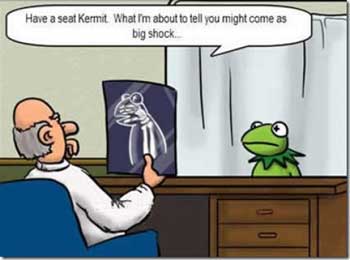
“Sir Walter Raleigh”
Chapter 7: Poet, Patron and “Atheist”
By Willard M. Wallace
Princeton University Press, First Edition, ©1959
Page 72
…tinued to struggle against odd impossible to overcome. True, he wrote deftly, delicately, of nymphs and sherpherds, of “Coral clasps and Amber studs,” but generally he left such subjects to others of his contemporaries. More likely was he to speak of the “weary soul and heavy thought,” of the uncertainty of love, and of the mystery of life. As the distinguished editor of the latest edition of his verse, Miss Agnes Latham, has written, Raleigh from his experience “knew how beauty is never more keenly apprehended than in the moment that emphasizes its inevitable decay, that light shows never brighter than between the two darknesses. He begins a love-song, and the last verse is an epitaph.” 3 What remains of Cynthia is a noble poem in imagery, thought, and passion; it is too little known. But in it, as in so many of his other poems, are the acerbic allusions, freighted with experience, to human frailty and the tragic transcience of life.
Raleigh could examine with a clinical eye and express an opinion astringent in its accents
✂ snipping poem ✂
Page 73
A similar emphasis, somberly ironical, appears in the solemn epitaph written on Sir Philip Sidneyʼs death in the Lowlands:
✂ snipping poem ✂
Probably nothing Raleigh ever wrote revealed so brilliantly his mastery of the savage thrust as The Lie. In those years when Essex supplanted him and when his own mischance brought him to a parting of the ways with the Queen after 1592, he brooded upon his experience of the world and penned a denunciation in which anger, bitterness, and disgust combined to form a ruthless, unsparing attack:
✂ snipping poem ✂
Page 74
✂ snipping poem ✂
Page 75
✂ snipping poem ✂
It is hardly surprising that a poem so critical in its spirit and content should provoke offended interests into replying. The answers to The Lie were numerous and biting. One starts:
✂ snipping poem ✂
Another reply, after enumerating the points challenged by Raleigh, ends:
✂ snipping poem ✂
Still another, somewhat more sophisticated, contains counter-charges:
✂ snipping poem ✂
Page 76
✂ snipping poem ✂
Men were always finding something sinister in Raleigh, and by many he was believed an atheist. The charge was given wide currency by Father Robert Parsons in a polemical counterattack to the Queenʼs proclamation of October 18, 1591 against the Jesuits. If Raleigh was admitted to the Privy Council, Parsons contended, one might expect at any time a royal edict denying the basic principles of Christianity. Parsons spoke of “Sir Walter Raleghʼs school of atheism by the way, and of the conjurer that is M[aster] thereof, and of the diligence used to get young gentlemen to this school, wherein both Moses and our Savior, the Old Testament and New Testament are jested at, and the scholars taught among other things to spell God backward.” 7
Raleighʼs tolerance has been exaggerated, particularly his tolerance towards Catholics, but it was ironical that he should have been singled out by a Catholic for an attack that found favor with his enemies, many of whom were bitterly anti-Catholic. But Parsons also called Lord Burghley an atheist, so Raleigh was in respectable company at the very least.
The appellation “atheist” has an unpleasant connotation for most people even today, but in the sixteenth century it could be utterly damning: men were burned for atheism. That it lacked precise definition made it a convenient tag to apply to oneʼs enemies, much as, today, it is possible to ruin a manʼs reputation by calling him a communist; whether he is or not is beside the point. Elizabethans considered as atheists people who would now be generally classified as atheists proper—skeptics, agnostics, deists, unitarians, persons seemingly acting without regard to ethical considerations—or, as the ablest analyst of Raleighʼs thought has declared in a recent study, simply “a dubious character or an intractable opponent.” 8
Page 77
Raleighʼs beliefs are not easy to categorize, for his was not a mind that saw things in blacks and whites or that accepted dogma without examination. He had read his Machiavelli, he cited him in his writings, and his behavior occasionally comported with the advice of the great Italian. But that Raleigh accepted Machiavellian principles without qualification is as much a misapprehension as that he believed without reservation in the theology of the day. Raleigh did not disbelieve in a God; rather, he was uncertain of the precise nature of God. One summer evening in 1593, Sir George Trenchard, Deputy Lieutenant of Dorset, gave a dinner party to which he invited, among others, Raleigh and his brother Carew; Sir Ralph Horsey, also Deputy Lieutenant; Ralph Ironside, a clergyman of Winterborne; and Vicar Whittle of Forthington. Carew Raleigh made a number of remarks to which Horsey objected as “loose” and dangerous. When Carew asked Ironside why this should be so, Ironside replied that “the wages of sin is death.” To Carewʼs jesting rejoinder that death came to saint and sinner alike, the clergyman declared that “death which is properly the wages of sin, is death eternal, both of the body and of the soul also.”
“Soul, what is that?” asked Carew, greatly daring.
When Ironside expressed a disinclination to inquire closely into what constituted the soul, and then fell silent altogether, Raleigh took over from his brother and entreated Ironside to answer Carewʼs question. “I have been a scholar some time in Oxford,” Raleigh added; “I have answered under a bachelor of art, and had talk with diverse; yet hitherunto in this point (to wit what the reasonable soul of man is) have I not by any been resolved.”
The conversation that followed satisfied Raleigh neither on the nature of the soul nor the nature of God. “Marry, these two be like,” he said impatiently, “for neither could I learn hitherto what God is.” Finally, he requested that grace be said, “for that…is better than this disputation.”
The dinner party became, in 1594, the subject of an investigation conducted under authorization of the Queenʼs “High Commissioners in Cases Ecclesiastical.” The investigating commission met at Cerne Abbas and included Viscount Howard of Bindon, Thomas Howard, Chancellor Francis James, John Wil-
Page 78
…liams, Francis Hawley, and Sir Ralph Horsey. The last had been present at the party. The written testimony submitted by Ironside contained a reasonably full account of the dinner conversation. Although no formal action was taken against Raleigh as a result of the investigation, there can be little doubt that his intellectual interests, Renaissance-natured in their number and diversity and in his desire to preserve an open mind, made him liable to suspicion. 9
What Raleigh actually believed shows evidence of a penetrating and sophisticated mind, if not one of great originality. In his opinion, God is known by His works or His words—“either by observing and conferring of things… or else by the word of God Himself.” 10 Furthermore, God “hath no any bodily shape or composition, for it is both against His nature and His word.” 11 Nor should God and Nature be confused, for “it is God that only disposeth of all things according to His own will…it is nature that can dispose of nothing, but according to the will of the matter wherein it worketh.” 12 Though men know by means of their reason the existence of God, they cannot know His essence: “such a nature cannot be said to be God, that can be in all conceived by man.” 13 God, therefore, is mystery, real in the evidence of His presence but inconceivable in image and essence. By comparison, the anthropomorphic conception of many of Raleighʼs contemporaries was something less than crude.
Raleigh on manʼs soul was reasonably conventional. 14 He speaks of three kinds of souls: the “feeding” soul, the “feeling” soul, and the soul “endowed with reason.” Animals have only the first two types and are mortal, whereas manʼs soul is immortal and possesses “an heavenly beginning.” The substance of the soul, “with its appetite and affection and desire,” he admits, is hardly known (a view he acknowledges St. Augustine as sharing), but it comes from God and returns to God. Sin, however,
Page 79
comes not from God. Rather, “the body doth communicate it to the soul, as the soul doth impart many things to the body; for they both make one person, and the soul in the body is straightway subject to the state of sin with the body…” He considered the soul of man to be immortal, a belief, he points out, which ancient thinkers, including Plato, shared and the Sadducees denied. The soul “hath no cause of death within it or without it…but liveth and abideth for ever after the body is dissolved.”
Raleighʼs thought is well within the traditional frame. His conceptions of God and the soul were foreshadowed by the great Christian fathers, Jerome and Augustine. His argument that the desires of the soul constitute evidence of immortality was used by Plato. His insistence that the soul furnished form to the body, giving life and motion to the whole, was straight out of Aristotle. If he leans more strongly toward Plato in preference to any other thinker, ancient or modern, his writing is studded with scriptural allusions with which he buttresses argument after argument. Certain modern writers have seen in Raleighʼs writings associations with liberal thinkers evidence of greater modernity in religious thinking than he may have deserved. As Edward Strathmann has pointed out in his masterly analysis of Raleighʼs intellectual interests, Raleighʼs emphasis on reason did not prevent him from yielding to scripture as the ultimate authority, and the skepticism evident in his arguments was no a device to attack Christianity but to support it. 15
The more closely one examines his writings, both prose and poetry, the more one sees a profound respect for religion. In his remark,
Say to the Church it shows
Whatʼs good, and doth no good,
he criticized the Church as an institution falling down in its mission, but that did not prevent him from telling the Dean of Westminster that he meant to die in the faith professed by the Church of England. 16 In his argument with Ironside, the latterʼs reasoning, rather than his convictions, annoyed him—“you
Page 80
answer not like a scholar,” Raleigh told the clergyman. To his son, in later days, Raleigh wrote, “Serve God; let Him be the Author of all thy actions,” 117 and there is little reason to conclude that this paternal advice was mere lip-service to a convention. His The Passionate Manʼs Pilgrimage is one of the truly great religious poems of his time. That Raleigh did not wholly convince some people, even to the day of his death, that he was not an atheist was owing less to what he actually believed, or professed to believe, than to what men preferred to think he believed. For Raleighʼs enemies were legion.
Part of the reason for the reputation of “atheist” that he acquired was undoubtedly the attraction that he felt for any man with a different sort of mind or interest. One brilliant, devil-may-care Elizabethan with whom his name is linked was Christopher Marlowe. Another, held in almost equal disrepute, was Thomas Hariot. Much has been written of the relationship between Marlowe and Raleigh, who may have been introduced by their mutual friend, Hariot. Most of the evidence of direct contact between Raleigh and the author of Tamburlaine and Dr. Faustus is based on inference. According to Mr. Strathmann, the sole bit of evidence that the two had ever conversed is the testimony of a spy, Richard Cholmeley, himself accused of atheism, that “Marlowe is able to show more sound reasons for atheism than any divine in England is able to give to prove divinity, and that Marlowe told him that he hath read the atheist lecture to Sir Walter Raleigh and others.” 18 All this aside, each was acquainted with the otherʼs works, and a bond of intellectual understanding may have existed between them. Raleigh was the more serious, the more realistic, as his reply to Marloweʼs Passionate Shepherd to His Love indicates. 19 Marloweʼs song is joyous and carefree:
Come, live with me and be my love,
And we will the the pleasures prove
✂ snipping poem ✂
Page 81
But Raleigh has the Nymph reply in a tone that manages to be both teasing and serious:
✂ snipping poem ✂
Like Raleigh, Marlowe was hounded by the rumors of atheism. His former tutor, Francis Ket, was sent to the stake in 1589 on the charge. Less cautious than Raleigh, Marlowe was finally brought to a near-reckoning when, in 1593, a warrant was issued for his arrest on the charges of atheism and blasphemy. But it was only a near-reckoning after all, since, before the law closed in, he died on May 30 from a knife wound received in a tavern brawl at Deptford. It is as absurd to conclude, as has been done, that Raleigh contrived to have Marlowe
Page 82
…assassinated as it is to contend, as has also been done, that Raleigh was the real William Shakespeare! 20
Raleighʼs association with Hariot likewise caused talk. Marlowe was rumored to have boasted that, beside his friend Hariot, “Moses was but a juggler,” and that Hariot “being Sir W. Raleghʼs man can do more than he.” At least, this was the report of an informer. 21 Hariot, of course, was Raleighʼs friend and protégé, the scientist and mathematician who had gone with Lane to Virginia. After 1593, Hariot became a member of the retinue of Henry Percy, Earl of Northumberland, but he and Raleigh remained close friends. Hariotʼs scientific interests led people to suspect his orthodoxy, and he had to clear himself before the Council. Aubrey, the seventeenth-century biographer, reported that Hariot taught the doctrine of deism to both Raleigh and Northumberland and that the divines looked upon his death from cancer of the lip or tongue as “a judgment upon him for nullifying the Scripture.” 22
Also suspicious company for Raleigh was Dr. John Dee, a strange person who has left a revealing diary. He knew astronomy, geography, (this alone would have interested Raleigh), and mathematics, and wrote a treatise on the Gregorian calendar which formed the basis for government acceptance of the change from the old Julian calendar until the English ecclesiastics, their fear of anything Catholic extending even to a time calculation, persuaded the government to cling to the old, if less accurate, method. But Deeʼs curious mind also led him into astrology and into delving into the occult. He heard mysterious noises in the night, dreamed weird dreams, spoke of evil spirits. How he escaped the stake was nothing short of a miracle, but Elizabeth seems to have liked him and Raleigh became his good friend. On April 1583, Dee wrote, “…the Queen went from Richmond toward Greenwich, and at her going on horseback, being new up, she called for me by Mr. Rawly his putting her in mind, and … gave me her right hand to kiss.” 23 Raleigh
Page 83
wrote to him, over two months later, of the Queenʼs good will to him. 24 As late as October 9, 1595, Raleigh invited Dee to dine with him at Durham House. 25 Many people thought Hariot was the master conjurer alluded to by the Jesuit Parsons in his attack on Raleighʼs “school of atheism” but Dee was certain he himself was the one Parsons had in mind. In any event, the fact that Raleigh and Dee enjoyed any kind of association was probably equally damning to each.
Raleighʼs abilities and interests, as well as the patronage he gave, are reflected in the attention scholars accorded him. Richard Hakluyt expressed his indebtedness to him. Martin Bassaniere of Paris dedicated to him his edition of an original narrative of the French attempt to settle Florida. The publisher of John Caseʼs Praise of Music dedicated this outstanding musical publication of its day to Raleigh as a skilled musician. Thomas Churchyard, the poet, inscribed his Spark of Friendship to him. Undoubtedly in response to his lively interest in chemistry and drugs, a medical treatise was also dedicated to him. An antiquarianʼs continuation of an ancient Irish history contained a warm tribute to Raleigh in the introduction as “rather a servant than a commander to his own fortune.” And so it went, by no means concluded with this list, an impressive catalogue of interests by this amazing man. 26
Raleigh was generous with his time and money, and careless of his reputation, where his interests and sympathies were involved. Anyone at all intellectually unusual could be sure of a hearing and possibly of support; he preserved an open and inquiring mind. It was his misfortune, from the point of view of contemporary popularity, that he took no pains to disguise his superiority but, rather, gloried in it in a manner so boldly insolent that it graveled men. They rejoiced at every misfortune that overtook him, and would have felt that he had received his just deserts had he been executed for atheism. No wonder they believed that his trip to Ireland in 1589, when he visited with Spenser, was a flight or an exile from Court; this was what they wanted to believe, for surely, in their eyes, he merited some kind of reduction in standing. And soon, if not in 1589, they were to have an opportunity to applaud more vigrously.

3. Latham, Raleghʼs Poems, xxvii.
7. An Advertisement Written to a Secretary of My L. Treasurers of England, by an English Intelligencer as He Passed through Germany towards Italy (1592), 18 quoted by E. A. Strathmann, Sir Walter Raleigh, A Study in Elizabethan Skepticism, 25; see also pp. 26-30.
8. Ibid., 96.
9. For a full report of the Cerne Abbas inquiry, see G. B. Harrison, Willobie His Avisa, App. III. For comment, see Strathmann, Ralegh, A Study in Elizabethan Skepticism, 46-52.
10. History of the World, bk. V, ch. i, sec. I (Works, II, 4).
11. Ibid. bk. I ch. ii, sec. I (Works, II, 46-47).
12. Preface to ibid. (Works, II, lvii).
13. Preface to ibid. (Works, II, lx).
14. The quotations that follow are from Raleighʼs A Treatise of the Soul, in Works, VIII, 571-91.
15. Strathmann, Ralegh, A Study in Elizabethan Skepticism, 126-32. See also R. W. Battenhouse, Marloweʼs “Tamburlaine,” 50-68; V. T. Harlow (ed.), The Discoverie of Guiana, xxxii-xxxviii; U. M. Ellis-Fermor, Christopher Marlowe, 163, M. C. Bradbrook, The School of Night, 61.
16. D. Jardine, Criminal Trials, I, 508.
117. Works, VIII, 570.
18. Strathmann, Ralegh, A Study in Elizabethan Skepticism, 40 and n. 51; the quotation is from Harleian MSS (British Museum), 6848, fol. 190.
19. For suggestions concerning the mental affinity of Raleigh and Marlowe, see Thompson, Ralegh, 78; Ellis-Fermor, Marlowe, 163, 165; Harlow (ed.) Discoverie of Guiana, xxxiv-xxxv.
20. For the assassination theory, see S. A. Tannenbaum, The Assassination of Christopher Marlowe, for the Shakespeare claim, see H. Pemberton, Jr., Shakespeare and Sir Walter Raleigh
21. See Harleian MSS (British Museum), 6848, fols., 185-86; C. F. Tucker Brooke, The Life of Marlowe, 98-100.
22. Aubrey, Brief Lives, I, 287.
23. The Private Diary of Dr. John Dee, 20.
24. Ibid., 21.
25. Ibid., 54-
26. Stebbing, Ralegh, 53-54.



